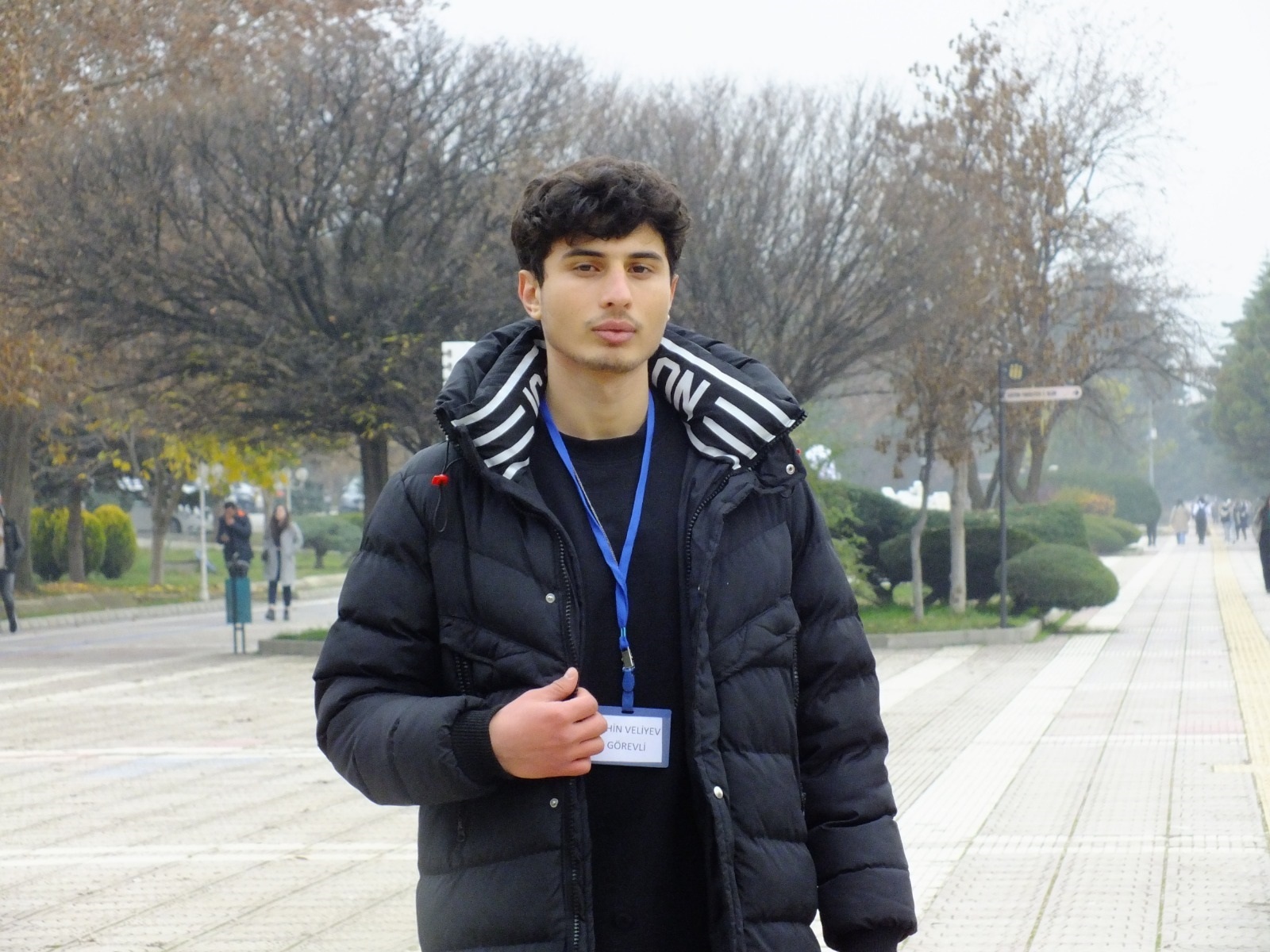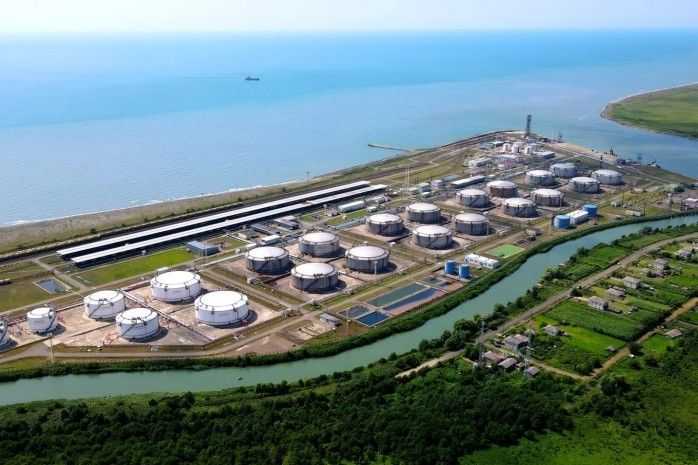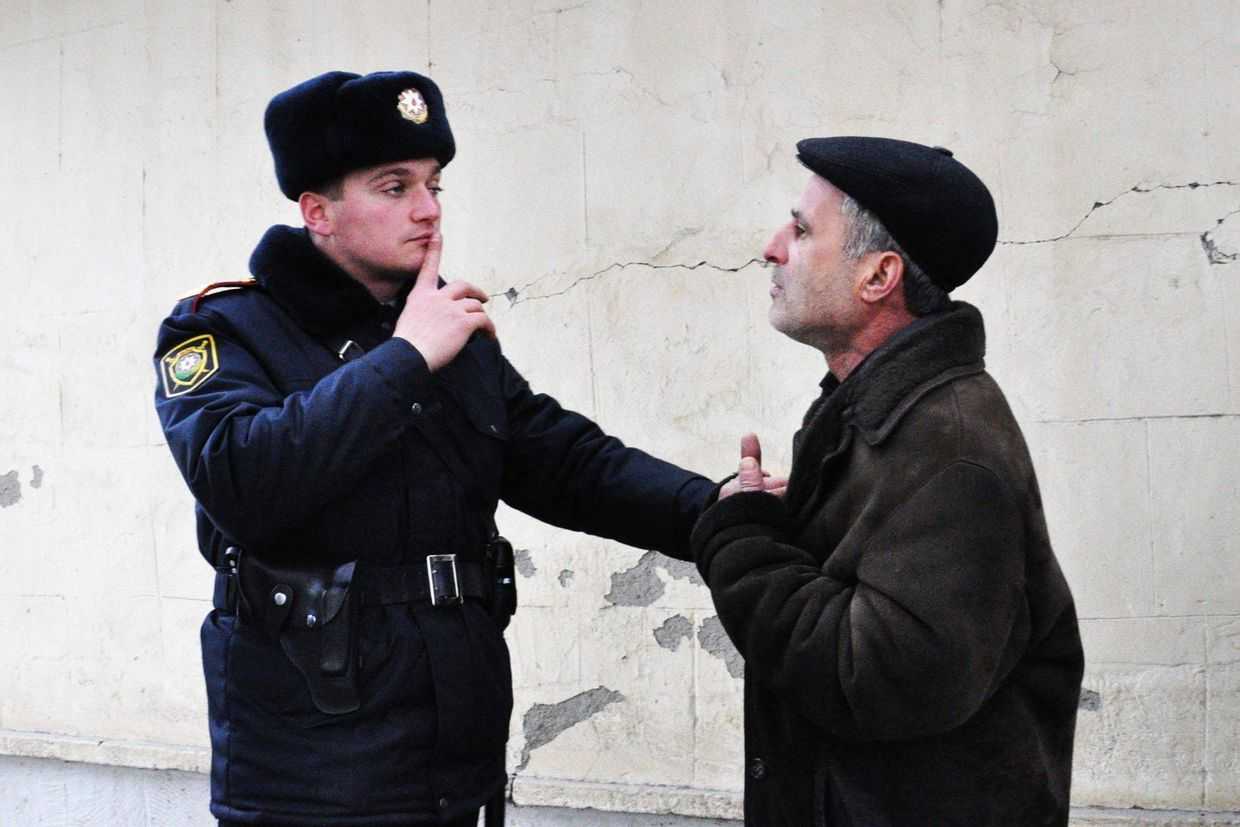
Three years after Azerbaijan closed its land borders in response to the coronavirus pandemic, those borders remain closed. But what did their closure mean for Azerbaijan’s people and government?
Shahin Valiyev’s final years in life were marked by displacement, fear over the COVID-19 pandemic, and an inability to return home to Azerbaijan.
Shortly after the pandemic made headlines around the world in 2020, Azerbaijan closed its land borders.
Many Azerbaijanis studying or working in neighbouring countries, like Valiyev, struggled to visit home after the pandemic started, often having to take expensive flights to Azerbaijan instead of going through the land border.
At just 22 years old, Valiyev was among the 10 Azerbaijani nationals confirmed to have died in February’s devastating Turkey–Syria earthquake, which claimed the lives of almost 60,000 people across both countries.

Shahin’s mother, Esmira Huseynova, blames her son’s death directly on the borders remaining closed.
‘The death of my child who survived the pandemic and the war happened because he could not return to the country’, she tells OC Media. ‘If the land borders were open, my son would have spent his semester vacation in his own country, like he does every year’.
Shahin’s family has struggled financially since the 2020 Second Nagorno-Karabakh War; an Armenian strike destroyed their house in Ganja, forcing them to live with relatives until their house could be restored.
Shahin made the decision to study sports management at Turkey’s İnönü University shortly after.
‘We barely get by, that’s why Shahin could not come during the holiday’, she says.
‘Shahin told me: “instead of spending so much money [on a flight], I will come in the summer with your permission. I shouldn’t come now” ’, she recalls.
She says that under normal circumstances, Azerbaijanis residing in Turkey would return home by taking a bus to Nakhchivan, Azerbaijan’s western exclave, and then taking a domestic flight to Baku — a much more affordable option than travelling to Baku or Nakhchivan from a Turkish airport.
Shahin’s last visit to Azerbaijan, in 2022, cost the family ₼1,000 ($600).
‘We will keep the borders closed as long as necessary’
While rules and regulations put in place to prevent the spread of the pandemic in Azerbaijan have changed over time, the closure of the borders has been the only constant.
When asked about this in July 2022, President Ilham Aliyev said that they would remain closed as long as necessary to avoid the spread of COVID-19.
‘The direction of the spread of most diseases are land borders. That’s why we keep our borders closed […] and we’ll keep our land borders closed as long as necessary. We do this to protect people’s health’, he said.
Before the pandemic, many Azerbaijanis chose to emigrate in neighbouring countries where they felt the economy provided better opportunities — primarily Russia and Turkey.
However, when the pandemic started, many wanted to return home but found they were unable to do so.
Hundreds attempted to enter Azerbaijan through Russia in early 2020, but were turned away at the border. Many camped out near the border for several months, before either flying in to Azerbaijan or returning to Russia.
Gazakh, one of the regions bordering Georgia, was a trade and transit hub for people moving between Azerbaijan and Georgia before 2020.
Vali Valiyev, 25, was one of the many people from the region who made a living selling goods from Georgia. He used to take orders from people in his village — primarily food and hygiene products — which he would later sell for a small markup.
‘We used to trade when the borders were open. We crossed the border and bought cigarettes, vodka, diapers, oil, sausages, and washing powder, and sold them in Gazakh’, says Valiyev, who now finds it ‘impossible’ to earn a liveable income to meet his family’s needs without direct and easy access to Georgia via land.
Business was good for Valiyev, who drove up to Georgia two to three times a week depending on his family’s expenses.
‘When the border was open, guests came from different parts of the country and abroad, restaurants, taxis, and shops worked well, and people supported each other’, he tells OC Media.
He adds that the border closure has helped contribute to higher crime rates in Gazakh, in the absence of alternative forms of employment.
‘Theft, drug trafficking, and other crimes have increased to an unimaginable level’, he says. ‘When the border was open, the region’s residents were busy doing business; they went to the border of Georgia and earned something. But now, they turn to crime for a living’.
Elsewhere in Gazakh, 34-year-old Intigam Mammadov struggles to find work to sustain his family. He used to earn ₼300–₼400 ($180–$240) a month as a taxi driver, but found that after the closure of the land border, demand reached an all-time low.
‘Who can I offer my services to? There are almost no jobs in Gazakh except across the border’, he tells OC Media.
‘I also sold the car because it became difficult to make a living after the borders were closed. I sold the car I bought for ₼3,200 ($1,900) for ₼2,400 ($1,400)’, he says. ‘How can I cover the needs of my family with ₼2,400?’
No state support and exorbitant airfares
Farid Mehralizade, a Baku-based economist and co-founder of Agora Analytical Collective, argues that the continued closure of the land border has significantly contributed to the economic woes of Azerbaijanis.
Mehralizade tells OC Media that those who study abroad, people who receive medical treatment in neighbouring countries, and Azerbaijanis whose income depends on foreign tourism were among those most affected.
‘Now that the road is closed, they are forced to use alternative routes or cannot go at all’, he says. ‘These people’s expenses increase, and they use more expensive means of transport’.
He added that Azerbaijan Airlines, the country’s flag carrier and largest airline company, has a monopoly on air travel and that increased demand for tickets in the absence of any other alternative allows it to charge exorbitant fares for passengers.
The company’s vice president, Samir Rzayev, confirmed in February that Azerbaijan Airlines ended 2022 with a net profit for the first time in its history.
While Azerbaijan offered state support to businesses affected by the pandemic, Mehralizade says that most business owners, particularly those engaged in small-time trade, were not formally registered.
He adds that the state does not offer incentives to entrepreneurship in the country and that many people choose not to register their businesses because of the lack of a competitive business environment and the failure of the state to ensure the rule of law.
‘The pandemic is virtually non-existent in Azerbaijan’
While COVID-19 remains the official reason for the borders remaining closed, many doubt this reasoning.
In May 2023, as most countries in the world had already reversed most, if not all of their COVID restrictions, the World Health Organisation downgraded COVID-19, no longer labelling it a global health emergency.
And while travel to and from Azerbaijan via land has been put on hold, air travel is now largely free of any restrictions.
‘Air borders are now completely free; the requirement for a COVID-19 passport has been removed but the land borders are still closed’, Mardan Ali, a doctor and infectious diseases specialist, tells OC Media.
He says that COVID-19 no longer poses any threat to Azerbaijan and that the only recently recorded significant outbreaks happened on the eve of Novruz this year, when seven people who were unable to consult doctors because of the holiday season died.
‘Due to these issues, we can say that the dangerous period related to COVID-19 is already over’, says Mardan.
As of late June, Azerbaijan has yet to comment on potentially reopening its land border any time soon.
However, members of Azerbaijan’s parliament openly call for the reopening of the border; MP Vahid Ahmadov has said that Baku should at least open its shared border with Georgia.
‘The COVID-19 pandemic is virtually non-existent in Azerbaijan as well. There are too many requests on this issue’, the MP told OC Media in April.
OC Media asked Ahmadov if he believed that the borders were only closed because of the pandemic, and not for security reasons as tensions with Iran and Armenia continue to mount. He said that ‘dangerous situations may occur in the country, and the state is working to prevent these situations’.
‘There is also the issue of state security here. This is very important for us. You see how much tension there is in Azerbaijan–Iran relations recently’, he said.
‘This problem is one of the main reasons for not opening the borders.’
Additional reporting by Ismi Aghayev.








